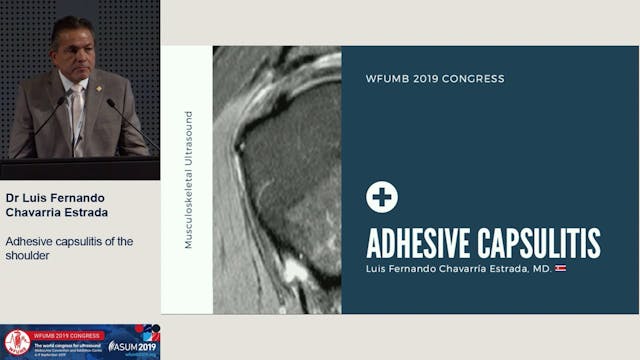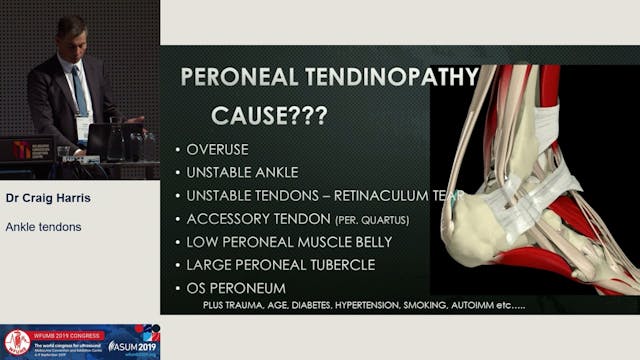Use of ultrasound in patients with clinical signs of adhesive capsulitis
MSK
•
8m 44s
Adhesive capsulitis (AC), also called frozen shoulder, is commonly diagnosed clinically and characterized by a global reduction of passive ranges of movement without radiographic abnormality. However, due to the effect of muscle spasm and pain, and other pathologies causing similar restriction of movements, the clinical diagnosis of AC can be challenging. Only invasive imaging procedures such as arthrography and arthroscopy have been shown to provide a definitive diagnosis for AC. Recent Magnetic Resonance Imaging studies(1-3) and ultrasound imaging studies (4-6) have shown a promising sign of an increased thickness of the inferior glenohumeral capsule (IGHC) in patients with AC. However the sensitivity and specificity of this finding using ultrasound in identifying patients with AC has not been established.
Up Next in MSK
-
Adhesive capsulitis of the shoulder
Adhesive capsulitis is the primary cause of loss of movement of the shoulder, other causes being trauma, rotator cuff dysfunction and arthritis. It consists of a restriction in the range of both passive and active movements of the shoulder; Has a prevalence of 2-5% of the population and is more c...
-
Advanced palmar fascia
Advances in medical treatments sometimes leads the way to advancements in diagnosis. Hand Surgeons are in a brave new world of mini endoscopes with a range of tools and implants. Thus, what was a quick 5 minute scan in the past may now take a little bit longer as the Surgeon wants more detailed i...
-
Ankle tendons
Ultrasound assessment of the ankle is one of the most commonly requested musculoskeletal examinations because of its wide availability, cost effectiveness, accuracy and safety. The superficial position of the ankle tendons makes ultrasound the ideal initial radiological investigation for patholog...



